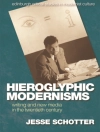Reading Westworld is the first volume to explore the cultural, textual and theoretical significance of the hugely successful HBO TV series Westworld. The essays engage in a series of original enquiries into the central themes of the series including conceptions of the human and posthuman, American history, gaming, memory, surveillance, AI, feminism, imperialism, free will and contemporary capitalism. In its varied critical engagements with the genre, narratives and contexts of Westworld, this volume explores the show’s wider and deeper meanings and the questions it poses, as well considering how Westworld reflects on the ethical implications of artificial life and technological innovation for our own futurity. With critical essays that draw on the interdisciplinary strengths and productive intersections of media, cultural and literary studies, Reading Westworld seeks to respond to the show’s fundamental question; “Have you ever questioned the nature of your reality?” It will be of interest to students, academics and general readers seeking to engage with Westworld and the far-reaching questions it poses about our current engagements with technology.
Tabella dei contenuti
1. Introduction, Alex Goody and Antonia Mackay.- 2. These violent delights: Navigating Westworld as ‘quality’ television, Kim Wilkins.- 3. ‘That which is real is irreplaceable’: Lies, Damned Lies, and (Dis)Simulations in Westworld, Will Slocombe.- 4. Factitive Maps: Manipulating Landscapes and Characters in Vast Narratives, Guilia Taurino and Sara Casoli.- 5. Westworld and the Pursuit of Meaningful Play, Andra Ivanescu.- 6. Music as a Source of Narrative Information in HBO’s Westworld, Kingsley Marshall.- 7. The Frontier Myth of Memory, Dreams, and Trauma in Westworld, Carol Erwin.- 8. Long Live the New Flesh: Race and the Posthuman in Westworld, Sherryl Vint.- 9. Flies in the Face: Entomology and the Mechanics of Becoming-Living in Westworld, Kristen Tregar.- 10. Westworld’s Archideology and the Impossibility of Freedom, Antonia Mackay.- 11. A Mere Instrument of Production: Representing Domestic Labour in Westworld, Sadek Kessous.- 12. Escaping the Robot’s Loop? Power and Purpose, Myth and History in Westworld’s Manufactured Frontier, Dustin Abnet.- 13. I-n- I re-member now: A Rastafari Reading of HBO’s Westworld, Milt Moise.- 14. The Theme Park of Forking Paths: Text, Intertext and Hypertext in Westworld, Alex Goody.- 15. Yul Brynner’s Hat and Time Travel in the Hyperreal, Leander Reeves.- 16. Epilogue, Alex Goody and Antonia Mackay.
Circa l’autore
Alex Goody is Professor of Twentieth Century Literature and Culture at Oxford Brookes University, UK. She researches and publishes on modernism, technology, women’s writing, feminism, poetry and American culture.
Antonia Mackay is Teaching Fellow of English Literature at Oxford Brookes University, UK. She is co-editor of a surveillance cultural studies collection with Palgrave Macmillan. Her research is focused on American literature and culture, twentieth and twenty-first century literature and cultural and media studies.












